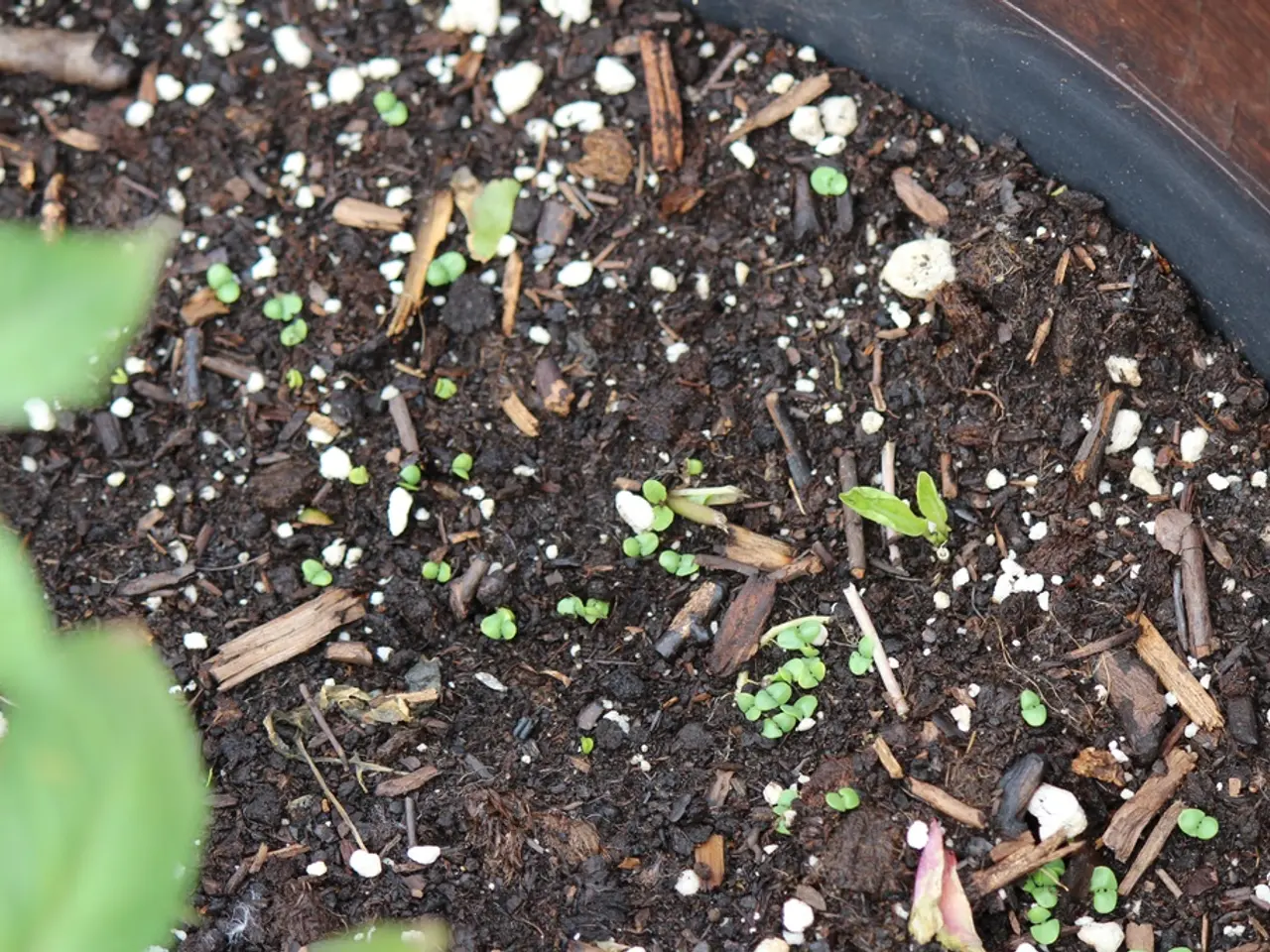Techniques for Improving Soil Near Established Plants: Boosting Garden Vitality with Precision
A well-tended garden is a sight to behold, but maintaining one requires more than just watering and sunning. The foundation of a thriving garden lies in the soil, and understanding the importance of soil amendments is key to growing healthy plants.
In spring, testing the soil first to determine the need for garden lime or other amendments is crucial. This simple test can reveal whether your soil is acidic or alkaline, and whether it requires adjustment to provide the optimal environment for your plants.
Garden lime is a consideration if soil tests indicate acidic conditions, but it's essential to apply it correctly to avoid harming plants. Lime raises the pH of acidic soil, while sulfur can lower alkaline pH levels.
Organic matter, including compost and manure, is crucial for a fertile garden as it contributes to soil structure, improves moisture retention, and fosters beneficial microbial activity. Using compost as mulch suppresses weeds and conditions the soil as it decomposes. Straw or shredded leaves improve soil structure as they break down.
Soil quality is crucial for the health of plants. Poor soil can become compacted and nutrient-depleted, but with the right amendments, it can become suitable for plant growth. Amending soil around existing plants is an ongoing task. Care should be taken when fertilizing and amending soil around existing plants to avoid damaging root systems.
Silt, a medium-textured soil, often rich in nutrients and good at retaining moisture, is an ideal base for a garden. However, clay soils are dense and retain moisture but may impede root growth and drainage, while sandy soils ensure good drainage but may struggle to hold nutrients and water. To address these issues, soil texture amendments like peat moss for clay soils to improve drainage and organic matter for sandy soils to increase stability and nutrient-holding capacity are beneficial.
Mulching can improve soil health by reducing weed growth, conserving moisture, and improving soil structure. Laying down mulch to regulate soil temperature and moisture is a fall preparation strategy. Wood chips improve aesthetic, reduce weeds, and retain moisture.
In autumn, top-dressing perennials with compost enriches the native soil. In spring, incorporating a little more compost or well-aged manure for additional nutrient input is a strategy worth considering.
A careful, methodical approach is necessary to avoid damaging the root systems of established plants. Regularly adding organic matter is vital for maintaining and improving soil fertility and structure over time.
In summary, a combination of organic matter (compost, manure, peat moss), pH adjusters (lime/sulfur), humic substances, and practices like mulching and cover cropping are fundamental for sustaining fertile, well-structured garden soil. Always assess the individual needs of your garden and adjust your strategies accordingly.
Remember, testing and amending your garden's soil can make a significant difference in the vitality of your plants. For more gardening tips and insights, check out Glen's blog, where you'll find articles on topics such as garden fungicides, optimal harvest times for Candy Cane Peppers and Watermelons, and more. Glen, a gardening expert with over 15 years of experience in garden maintenance, design, and landscaping services, creates helpful content to guide you on your gardening journey.
[1] University of Florida IFAS Extension. (2020). Soil Amendments. Retrieved from https://sfyl.ifas.ufl.edu/media/sfylifasufledu/counties/leon/docs/publications/soil_amendments.pdf [2] University of California Agriculture and Natural Resources. (2021). Soil Amendments. Retrieved from https://ucanr.edu/sites/soils/files/313886.pdf [3] Cornell University Cooperative Extension. (2021). Soil Amendments. Retrieved from https://www.gardening.cornell.edu/homegardening/soil-amendments/ [4] National Gardening Association. (2021). Humic Substances. Retrieved from https://www.gardenmyths.com/humic-substances/ [5] National Gardening Association. (2021). Organic Matter. Retrieved from https://www.gardenmyths.com/organic-matter/
In spring, it's essential to test the soil first to determine the need for soil amendments, such as garden lime or compost, to ensure a healthy home-and-garden lifestyle. Organic matter, like compost and manure, is crucial for a fertile garden as it improves soil structure, moisture retention, and fosters beneficial microbial activity, contributing to a thriving lifestyle that includes home-and-gardening.





